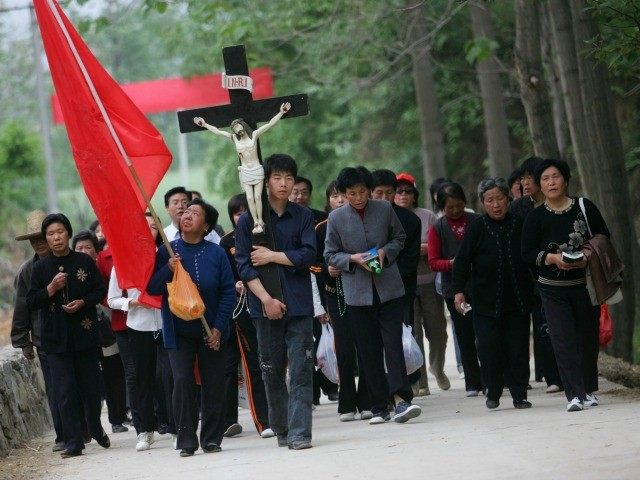Chinese President Xi Jinping harbors a “particular animosity” toward Christians and sees underground churches as a “severe national security threat,” according to the founder of China Aid, a U.S.-based watchdog group.
China Aid founder and president Bob Fu told a conference on religious persecution last week that the number of persecuted Christians has “dramatically increased” under the reign of President Xi Jinping who has “animosity against Christianity in particular.”
“The number of people we documented who are persecuted among just Christians alone last year reached 223,000 compared to these 48,000 in 2016,” Mr. Fu said.
Whereas underground churches that operate outside state control are seen as a particular threat, growing attendance even at official churches has provoked hostility from the Xi government.
Mr. Fu said the communist-controlled state is forcing churches to install facial recognition systems to identify those attending services. Every church building was “forced to put a sign banning children, students, civil servants, military personnel, and communist party members from entering,” he said.
The China Aid founder said, however, that “persecution will only help accelerate the growth” of the Christian faithful, as it has in the past. Fu, who was a student leader in China during the 1989 Tiananmen Square demonstrations, founded China Aid in 2002, to monitor and expose “the systematic persecution, harassment, torture, and imprisonment of Chinese Christians and human rights lawyers in China.”
In his discussion of Christian persecution sponsored by the Heritage Foundation, Fu said that President Xi sees the rise of Christianity in China as a threat to his rule.
Since assuming the presidency in 2013, Xi has tightened control over all religious activity in the nation, insisting that “all religions must be Chinese-orientated.”
President Xi has reiterated that all religions active in China must be “Sinicized,” or rendered compatible with the beliefs and programs of Communist China and purged of western influence and control.
At the Chinese Communist Party (CPC) Congress last October, the head of the umbrella agency that oversees religion insisted that “socialist core values” must be at the heart of any religious faith active in China.
Zhang Yijiong, the leader of the United Front Work Department (UFWD), said that the Communist Party had a long way to go to “Sinicize” religion, which required preventing anyone from “taking advantage of religion to harm national security” and “endangering national unity.”
In late March, Beijing ordered bibles and other Christian books removed from online bookstores across China, sparking a wave of complaints.
Just prior to the measure, China had announced that one of its biggest tasks in the coming years is to enhance “Chinese-style Christianity” by reinterpreting and retranslating the Bible. The announcement came in a document, titled “Principles for Promoting the Chinese Christianity in China for the Next Five Years (2018-2022),” which was launched in Nanjing on March 28.
The bible is technically an illegal publication in China, since it is not officially approved by the Chinese Government for publication, and therefore it cannot be sold and can only be circulated in churches.
Follow Thomas D. Williams on Twitter Follow @tdwilliamsrome

COMMENTS
Please let us know if you're having issues with commenting.